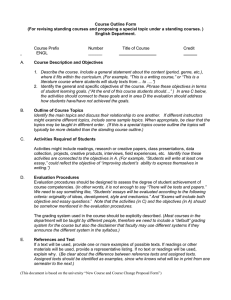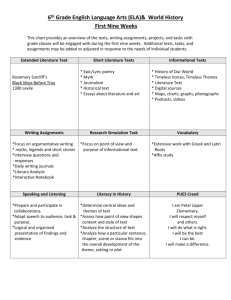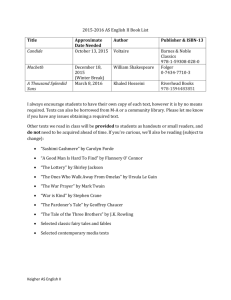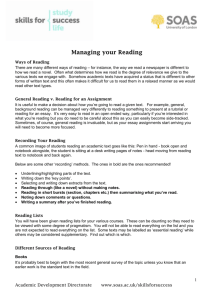Key Principles of New Historicism
advertisement
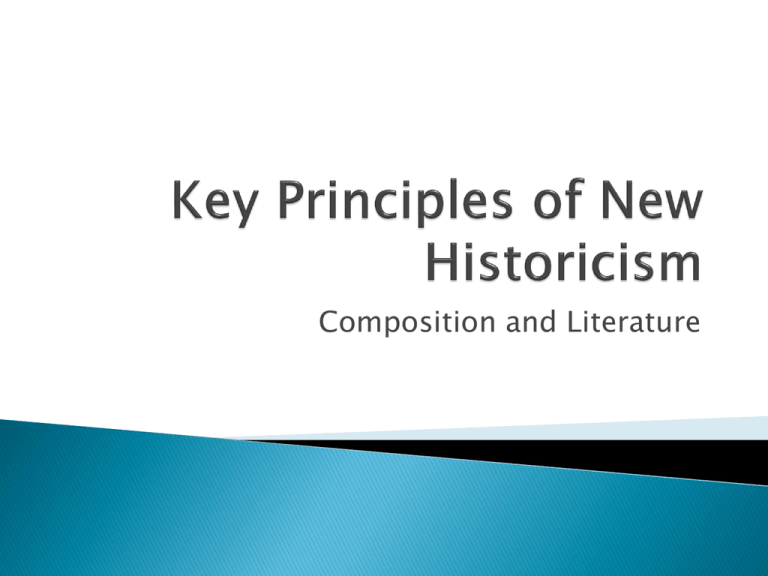
Composition and Literature History is not reducible to the activities of a few prominent individuals History is a story that is constructed out of an immense amount of possible data and the interpretations of that data History we encounter is based upon the belief system of the person who composed that particular historical account The mundane activities and conditions of daily life can tell us much about the belief systems of a time period A people can hardly be extrapolated from the activities of the political or cultural system of which they are a part Literary and other cultural texts are connected in complex ways to the time period in which they were created. Systems of social power are both reflected in and reinforced by such texts Literature can’t be “timeless” Look for the ways in which the text could only been have written at the time in which it was written Examine the systems of power in place and how they interact with your text “Text” can have multiple meanings Thing about the different “texts” that are at your disposal as a researcher and critic Expand your discussion to address costuming, imagery, body language, advertising, film, etc. How do other texts of the time period reflect the social interests that your text may be addressing? Readings of texts provide insight into the complexity of human thought and experience It would be arrogant or naïve to believe that complexity can be fully covered in a single response New Historicism and cultural analysis never suggests “conclusive” ideas; rather, it offers multiple readings and possibilities



